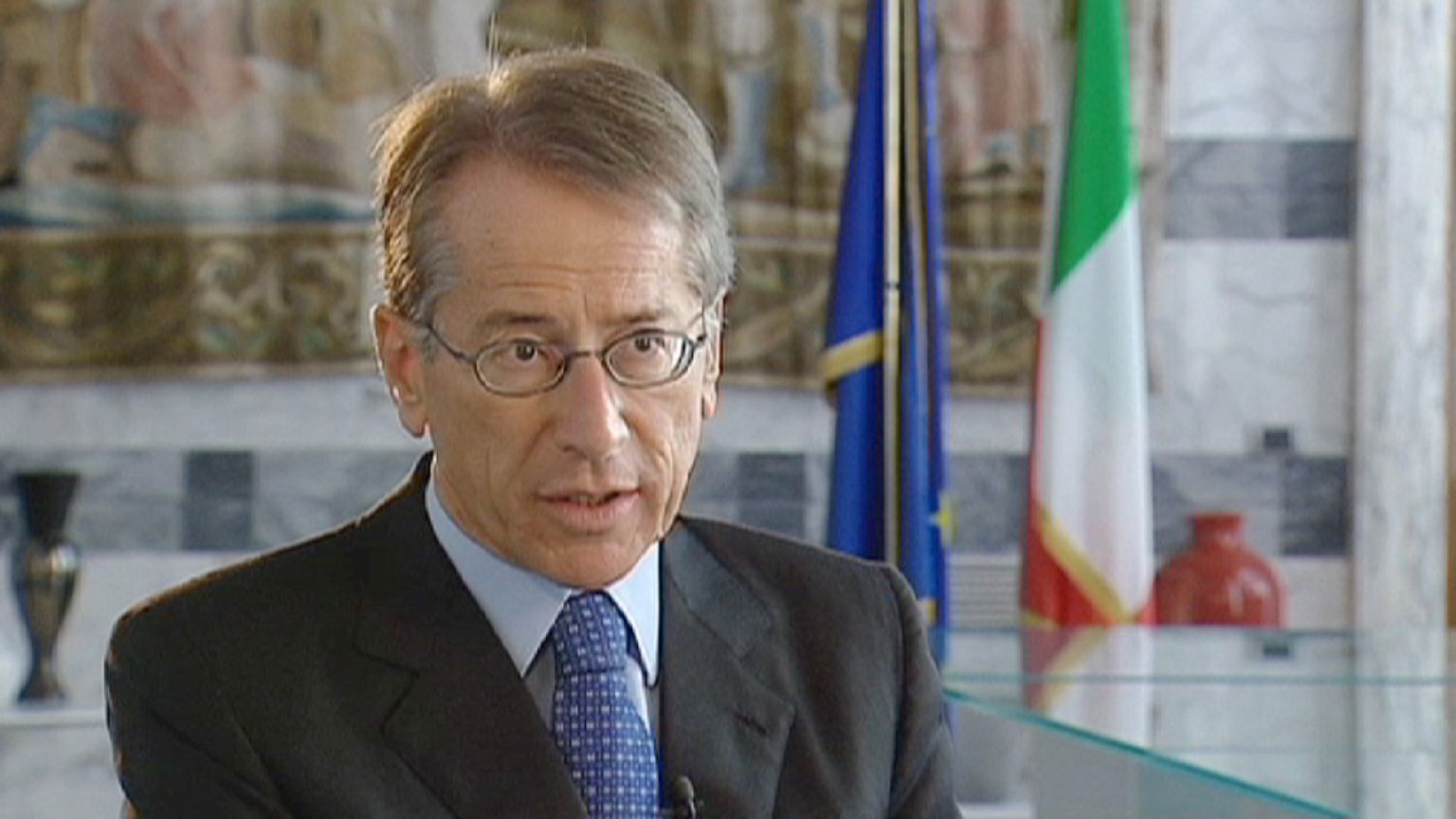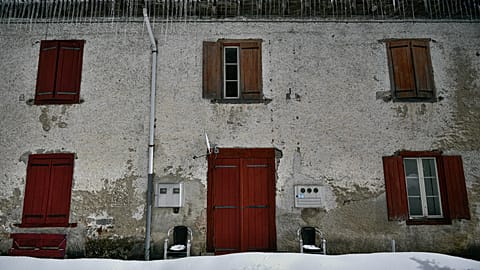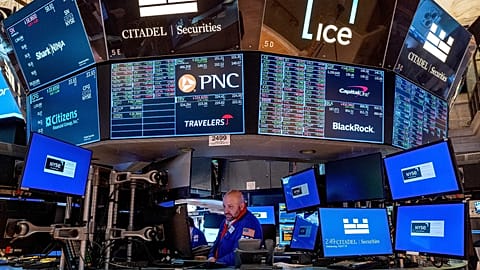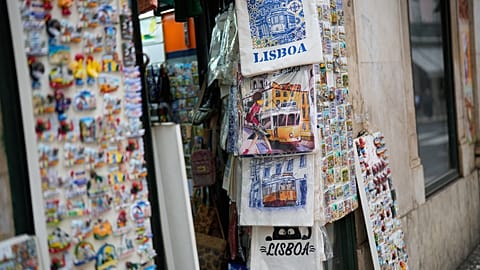From the financial crisis and European integration to relations with Mediterranean countires and even the Arab uprisings, we met with the head of Italian Foreign Minister to answer some of our questions.
Luigi Spinola, Euronews:
Thank you for receiving euronews here at The Farnesina, the Italian Ministry of Foreign Affairs. Do you think the Council’s European agreement at the end of June is sufficient to meet the urgent need for stabilisation in the euro area or will it serve another purpose?
Giulio Terzi, Italian Foreign Affairs Minister:
The agreement is enough. Italy and the Foreign Secretary (Monti) have contributed substantially to the agreements of the European Council, and consider them good decisions, which of course will be executed only in the context of the Eurogroup and Ecofin. Ecofin and Eurogroup will then define all the conditions of use of the firewall, because it was designed in relation to the excessive fluctuating spreads, which is particularly an issue for Italy, and we consider it a convincing measure, not only because it gives us a tool of intervention, but also by virtue of its existence. We know that financial markets are based largely on the expectations of investors and speculators. So having taken a measure of this type and knowing that it will be executed within a short period, is reassuring .
Liugi Spinola:
For Italy, what is or what should be the fine line between facing this crisis and boosting European construction?
Giulio Terzi:
Italy believes firmly in strengthening integration in all areas of European integration. Political integration, financial integration, economic integration. This is a political line rooted in parliament and public opinion, we have a strong federalist movement with goals for integration which are very clear and well defined. So we want to expand the legitimacy of european institutions. In fact we’re satisfied that the Lisbon Treaty has created the conditions for both the expansion of legitimacy and the role of the European Parliament. But we remain convinced that the path to institutional reinforcement lies in fighting for a competitive Europe – a Europe that can truly play a significant role.
Luigi Spinola:
Let’s leave our continent and head south. The Arab world is undergoing a major phase of transformation and change. In your opinion, what can and should Europeans do to encourage the transition process that will lead to a new order?
Giulio Terzi:
From the very start of Monti’s government we’ve set ourselves on a very determined course in Mediterranean policy which oversees ongoing transformations in society, in institutions of these countries, mainly Tunisia, Libya, Egypt and also the Algerian and Moroccan perspectives.
We hope that Syria, which is really seeing these transformations uses the opportunity to make new partnerships from a new approach. An approach which isn’t merely political but also cultural and shapes how we view the new reality of political Islam that has emerged in the southern Mediterranean.
On first inspection of these efforts, I can already see some encouraging and positive signs. This is because the elections in these countries delivered clear indications of a very high turnout and especially among societies where sometimes the feminine component was marginalised by way of policy, we saw a particularly high participation of women.
Luigi Spinola:
Minister, there is a very real challenge arising from the Mediterranean, represented by the boatloads of aspiring immigrants setting out to sea. In your opinion, does the Arab Spring require a different approach – is there another way to manage this migratory pressure, not only from Italy, which is the first point of embarking, but also of Europe as a whole?
Giulio Terzi:
This is necessary, I think Italy is the country which does most for the protection of people, for men, for their safety and also for the conditions of the weakest, who face a sea voyage with scant hopes of reaching the mainland on the other side. In the first six months of this year alone, we saved over 800 migrants in boats in distress, so the Italian coastguard responded to 800 cases. And we had an influx of nearly a thousand people in the first half. These figures are very different from those we recorded from Tunisia and Libya in 2011 as a whole, when we recorded 28 000 and 29,000 people respctively having emigrated from the two countries.
The problem remains, but we see it less as a problem so much as a big challenge that Europe has to manage with responsibility and still carry forward the partnership relations with the countries that I’ve discussed. Much has been done on our part, bilaterally, but hopefully it will also continue to be done at European level, through partnership and mobility agreements and also with the ability to assist these countries in documentation ID to control their borders. But we also need to cope with planning for the integration of people who move for reasons of a growing population in this region of the world, or on humanitarian grounds from disasters like the one that happened in Syria.
Luigi Spinola:
Minister Terzi, thank you very much.
Giulio Terzi:
Thank you.


















